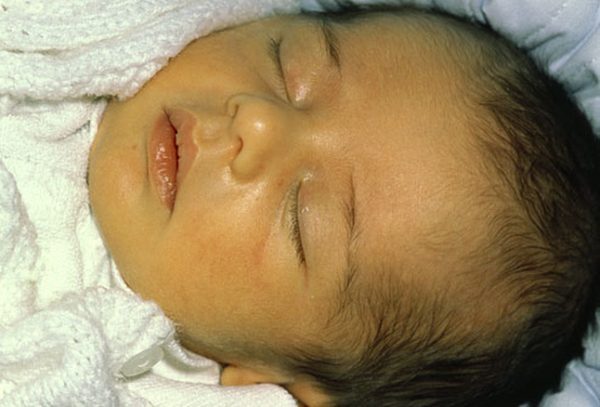
Precum is a common topic in sexual health, fertility, and contraception. Many men and women want to know if precum can cause pregnancy, and what the real probabilities are- especially while a person is ovulating, or right after a period. These are all important questions that deserve accurate and thorough medical answers.
We have divided the information to explain what precum is, how it can cause pregnancy, the associated risks, and what men and women should look for to understand reproductive health.
What is Precum?
Precum, clinically referred to as pre-ejaculate fluid, is a natural fluid that is secreted by the penis during sexual arousal prior to ejaculation. Precum is secreted by the Cowper’s glands (bulbourethral glands) to:
1. Lubricate the urethra for the passage of sperm;
2. Neutralise any acidic residue of urine;
3. Prepare the reproductive tract for ejaculation.
Although precum itself does not serve the purpose of carrying sperm, research does suggest that sperm can be found in traces of precum, hence the risk of pregnancy exists.
How Can Precum Cause Pregnancy?
Pregnancy is the process that happens when sperm meets and fertilises an egg. And while precum is not an ejaculate, studies suggest that viable sperm can leak into precum or come from residual sperm situated in the urethra from a previous ejaculation.
We need to understand this further. The following points explain the various scenarios on this:
1. The risk for pregnancy increases if precum with sperm is present when women are ovulating, because this is when women are most fertile.
2. There is no ejaculate deposited into the vagina from someone, but sperm that is present in precum is enough to travel and fertilise an egg.
So, while the risk for pregnancy from precum is less than that of pregnancy from full ejaculate, the likelihood of pregnancy cannot be completely ruled out.
13 Key Points about precum and pregnancy
1. Keep in mind the timing of ovulation
It is important to remember that the risk of pregnancy is higher if precum is released during ovulation. This would happen typically around day 12–16 of a menstrual cycle. Therefore, women should track their cycles to understand their fertile window. So to the question whether precum can cause a woman to be pregnant – yes, it can if you don’t watch the cycle time periods.
2. The capacity of the Sperm Survival in the Female Reproductive Tract
Did you know that Sperm can live up to 5 days inside the female body safely? This means that even a small presence in precum can be enough for fertilisation. So, this is why we repeatedly explain the need to have the menstrual cycle in mind.
3. Various Withdrawal Methods and their related risks
Many people feel withdrawal is a great solution. Relying on withdrawal before the sudden ejaculation is risky, as you may have noticed, the precum is released before withdrawal occurs. Thus, this method is known to be unreliable as a birth control solution.
4. Note the Frequency of Sexual Intercourse
The more frequent unprotected intercourse occurs, that is when you need to take care. In such cases, there is a higher risk of sperm in precum which can lead to pregnancy.
5. How to know the presence of Sperm in Precum
Quite a few medical studies suggest sperm may not always be present. Still. it can be present, depending on individual physiology and recent ejaculation, and health quality of the person.
6. The possibility of Pregnancy Without Ejaculation
Yes, this is possible. The reason behind this is that precum is a good carrier of the sperm from a previous release.
7. The External Contact of a female body with Sperm
In case there is the presence of sperm or perhaps just pre cum near the vaginal opening, there are chances that the pregnancy is still possible.
8. The percentage of Chances During Different Cycle Phases
The chances are lower but not zero. The reason behind this is that sperm can live for days. Also ovulation can occur earlier than expected.
9. Quantity of Fluid needed to fertilize the egg
Sperm can exist in the fluid precum. Even when a drop of sperm or precum is released, it can contain a reasonable quantity of sperm to fertilize an egg.
10. Proper Emptying of the Urethra can be a reason for pregnancy
If urination or cleansing of the urethra does not happen between ejaculations for the woman, then there is a risk here, too. In such a case, the residual sperm can mingle with precum.
11. Misconceptions that surround Precum
Some people feel that precum is “safe” or will not lead to pregnancy since it’s not semen. However, the medical evidence presents various cases whereby it can give a positive pregnancy in fertile scenarios.
12. Symptoms of Fertilization and Signs to Watch For
To begin with, there are no clear symptoms of precum itself. But women need to watch for early pregnancy symptoms such as a missed period, nausea, fatigue, or tiredness apart from the usual bodily changes. In case they have had intercourse, then monitoring the body is a good idea.
13. Precautionary Measures
Using condoms, contraceptive pills, IUDs, or other reliable birth control methods are the best way to avoid unwanted pregnancy caused by precum. Withdrawal alone should not be considered safe.
Medical Advice for Pregnancy and When to Seek Help From Your Gynecologist
If you’re concerned about pregnancy risks from precum, you need to stop assuming and seek medical advice and check-ups from a healthcare professional. Many individuals do not treat precum seriously as a concern and believe it is harmless. However, healthcare professionals have stated that this fluid or precum may contain sperm that could fertilize an egg. Reproductive medicine and fertility care specialists at KJK Hospital have indicated that even a slight chance that sperm could be present after precum has entered a partner’s vagina could lead to pregnancy if the conditions are favorable.
Healthcare professionals have recommended that individuals and couples follow some easy but precautionary steps:
- Emergency Contraceptive Pill: In a case of unprotected sexual intercourse, there is little to be done aside from precautions. You could have taken the easy and timely steps necessary to help avoid the pregnancy risk by taking the emergency contraceptive pill (within 72 hours). Taking this pill, as soon as possible, is much more beneficial to the former couple and will alleviate the stresses involved with sexually active relationships and contribute to a peaceful and harmonious intimate relationship.
- Regular Contraceptive Options: For sexually active people, especially younger couples, consider long-term contraceptive methods like birth control pills, intrauterine devices (IUD’s), and implants. Generally get an effective way to reduce the risk of a long-term relationship obligation to pregnancy. Relying on withdrawal is not the best, relying on presumed chances is not the best either. Fertility Awareness Understanding your ovulation cycle is critical. During your fertile days, even a little bit of sperm in a precum could lead to conception.
- Always Seek Medical Consultation: If you have periods that come around irregularly, and even pregnancy signs such as sudden tiredness, do not wait. Research contraception in general and learn how to use them. You should be talking to qualified health experts. The better choice will always be to take the solutions of a focus health expert or an obstetrician-gynecologist or similar fertility expert. You are better talking to a professional than relying on your myths and self-knowledge.
Experts always recommend the overall management of your reproductive health. This advice is not just for avoiding unplanned pregnancies. They want to ensure your health long-term. The key is to be talking about it with medical professionals in the gynecology department, which helps you make an informed decision, with, and without any myths and/or half-truth.
Conclusion
So, after a general comment can precum cause pregnancy in most cases. The straightforward answer is yes; it can, however the chances are lower than a full ejaculation, this does not make this impossible. There would be several factors that would be in question to determine actual risk, such as, the timing of ovulation, the sperm count in the precum, and the viability of sperm once inside the female reproductive system.
Couples need to understand unprotected intercourse cannot be taken lightly. Sure, you may be thinking of withdrawal, but remember withdrawal is not a complete guarantee against unintended pregnancy. In fact, numerous unintended pregnancies occur because people believe and rely on various myths, or only half of the information around precum and the associated risks.
Also Read: Causes of Infertility in Women
For both women and men, understanding precum and how it works is important. Becoming educated on the risks, and committing to taking consistent precautionary measures can help to avoid the emotional, financial, and health complications that come from unintended pregnancies.
If you still have specific doubts about pregnancy, you should contact a Medical Health Professional as soon as possible. Remember that even a small amount of sperm or precum is capable of fertilizing an egg, if the conditions for fertilization are right. Taking precautionary measures when having sexual intercourse, with utilizing the appropriate protection or contraceptive, along with seeking medical advice will help to avoid unwanted pregnancies and protect your reproductive health.





